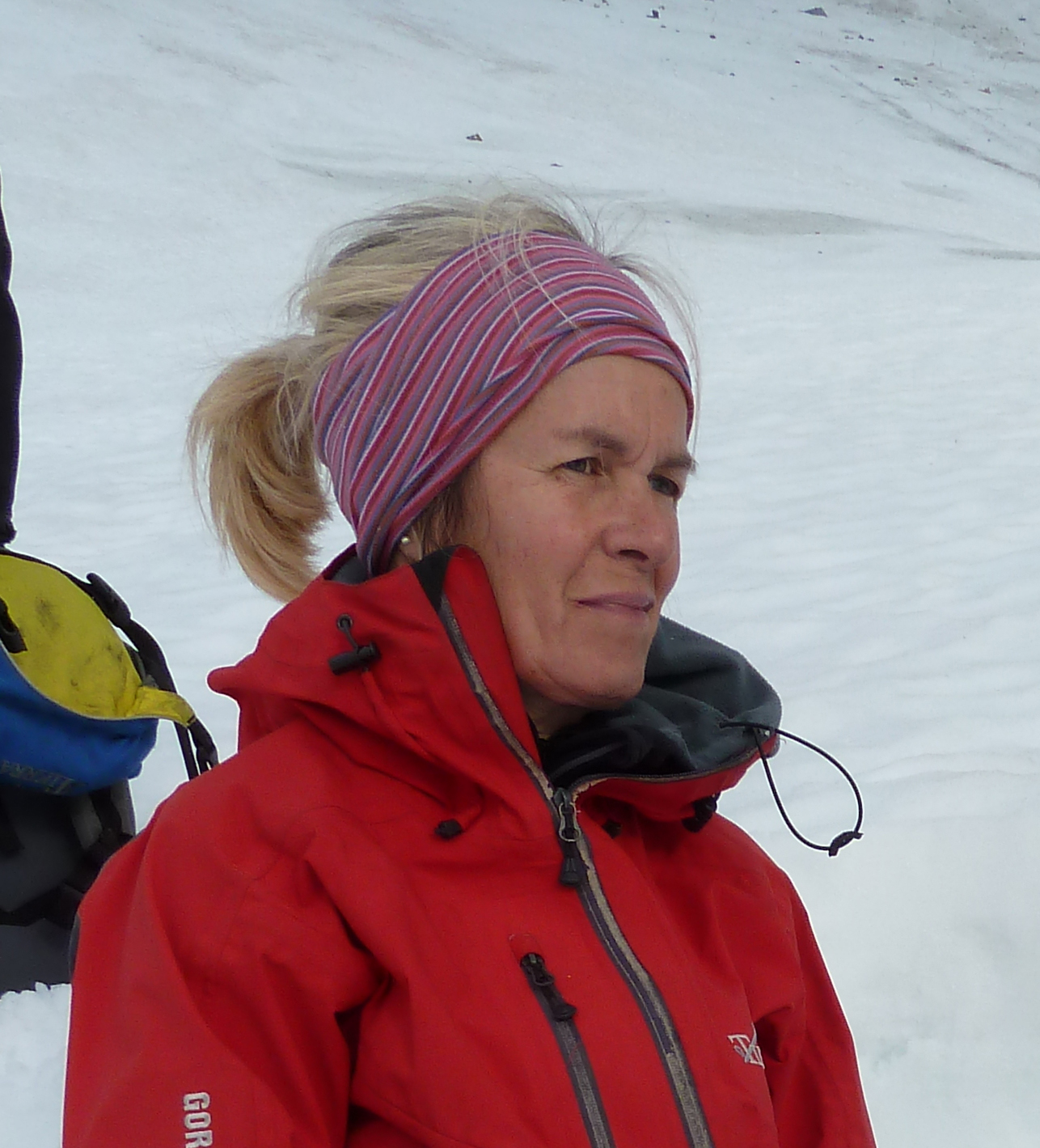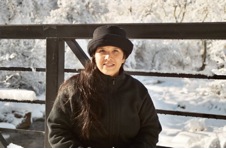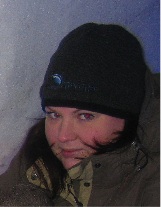-
Bridging the Gap: Indigenous, Social and Natural Science Perspectives on Research Relationships in Nordic Countries
Every story has at least two sides. The story of climate change research in Nordic communities has three. This webinar is intended to highlight the main communication challenges faced by natural scientists, as well as social scientists, in their community-based research efforts. As well, it seeks to highlight Indigenous perspectives on how to open a successful dialogue and begin to overcome challenges.
In this webinar, you will be introduced to the fundamental issues that can hinder cross-communication between social scientists, natural scientists and members of indigenous communities in Nordic regions. When communication is compromised, relevant knowledge and evidence from indigenous sources can be left out of scientific considerations, and the validity of findings can be compromised in turn. Climate change is a problem that impacts us all, so it is essential to start working together to find solutions we can share.
Presenters:
1. Gail Fondahl, IASSA President, University of Northern British Columbia
2. Gunhild Ninis Rosqvist, Stockholm University, Sweden and Tarfala Research Station
-
Getting in touch with Nordic communities: Reaching out gently
Approaching an unfamiliar community can be a challenge for a researcher, considering it takes time for a community to come to know and trust a new face. The process of building a trusting relationship between a community and a research group is delicate, and we must all tread lightly towards co-operative cohabitation during research efforts. This webinar is intended to highlight some difficulties faced by researchers and community members, even of a shared background, in introducing the prospect of collaborating in a shared space.
Presenters:
1. Svetlana Usenyuk, Aalto University School of Art, Design and Architecture, Helsinki, Finland
2. Heidi McCann, Colleen Strawhacker and Peter Pulsifer, Exchange for Local Observations and Knowledge of the Arctic at the National Snow and Ice Data Centre, USA
-
Reflections on Sami research: being a researcher and being researched
What does it mean to be a researcher, but also to be researched at the same time? In this webinar we will share Sami perspectives and thoughts on this very cutting-edge of community-based research.
Presenter:
Else Grete Broderstad, Center for Sami Studies at the University of Tromsø, Tromsø, Norway
-
Youth indigenous peoples in education and outreach
Engaging Indigenous youth in research that guides the development of their home communities is not a matter of simply giving them tools to think scientifically. Part of the purpose of education and outreach is to create a platform for different kinds of knowledge to merge, and to cultivate innovative solutions for a shared future. This webinar seeks to promote the indigenous youth voice and provide guidance for outreach planners in polar communities.
Presenter:
Dmitriy Berezhkov, University of Tromso
-
Indigenous Knowledge management through Information and Communication Technologies
Community-based research by, with, and for Arctic Indigenous peoples has become recognized as a valuable source of data and often involves knowledge and observations of residents and local experts. These data frequently take the form of recordings or books, but recent development of Information Technologies of various kinds such as GIS, interactive mapping, and websites documenting oral histories allow for Indigenous Arctic research to be made available to communities, researchers, and other interested groups. In this webinar, we will present a review of various systems being developed through the Exchange for Local Observations and Knowledge in the Arctic (ELOKA) as well as discuss the opportunities to collect, manage and represent Indigenous knowledge through Information and Communication Technology. Throughout the presentation, we will discuss issues that must be considered and addressed throughout the project including practical challenges, appropriate representation, and ethical and legal issues.
Presenters:
Heidi McCann
Colleen Strawhacker
Peter Pulsifer
Exchange for Local Observations and Knowledge of the Arctic (ELOKA) at the National Snow and Ice Data Centre, USA
-
Essential keys to successful research summarized: Building collegial relationships with Indiginous community members
The sixth and final webinar in this series summarizes the key points made by the speakers featured in the previous five, and illuminates some practical takeaways that will be useful to researchers and indigenous community members alike. The insights shared in this series range from tips about initial contact to nurture lasting relationships after data collection needs have been met. The main relevant theme is cultural inclusion, in a day to day sense, in gathering and disseminating knowledge through formal and informal avenues, and in recording and databasing a complete set of observations that can be interpreted and critiqued from many perspectives. This summary offers an overview of essential considerations that will enhance the field research experience for everyone involved and optimize the value of scientific conclusions by generally guiding the most well-informed analyses of data.
Co-chaired by Jocelyn Torma and Yulia Zaika
APECS Nordic Webinars
 The APECS Nordic Project “Bridging Early Career Researchers and Indigenous Peoples in Nordic Countries” featured a series of 6 webinars. The webinar series identified current research challenges from the perspective of ECRs and Indigenous peoples and aimed to define potential solutions to overcome these existing challenges to communication and other research issues. Webinars were held weekly in October & November 2013.
The APECS Nordic Project “Bridging Early Career Researchers and Indigenous Peoples in Nordic Countries” featured a series of 6 webinars. The webinar series identified current research challenges from the perspective of ECRs and Indigenous peoples and aimed to define potential solutions to overcome these existing challenges to communication and other research issues. Webinars were held weekly in October & November 2013.
The webinar information and recordings are also available on in the APECS Webinar list on the APECS website.
Webinar Presenters
-
Gail Fondahl
 IASSA President
IASSA President
University of Northern British Columbia
Prince George, British Columbia, CanadaGail Fondahl is Professor of Geography at the University of Northern British Columbia, and served as UNBC's Vice-President of Research, 2008-2012. Heading to graduate school to study Moscow’s urban morphology, Gail soon became more interested in indigenous cultural geography of the Russian North. She examined the effect of the Baykal-Amur (BAM) railway construction on Evenki reindeer husbandry in Transbaykalia for her Ph.D. (U.C. Berkeley), then focused more broadly to indigenous land rights and legal geography in the Russian North.
Gail has also carried out co-managed research on sustainable resource management with Tl’azt’en Nation in northern British Columbia. She has been involved in organizing two International Summer Schools on Indigenous Rights, led by Natalia Novikova of the Institute of Ethnology and Anthropology. Gail is involved in the Arctic Social Indicators project, and serves as one of the co-leads on the Arctic Human Development Report 2. She has been a member of IASSA since 1992.
-
Gunhild Ninis Rosqvist
 Professor Gunhild Ninis Rosqvist is specialized in the effect of environmental and climate change in alpine and polar areas. She has studied the effect of climate change on glaciers and the alpine terrestrial and limnological environment both in the Arctic and in the Antarctic. She is a professor at Stockholm University, Sweden and at Bergen University, Norway.
Professor Gunhild Ninis Rosqvist is specialized in the effect of environmental and climate change in alpine and polar areas. She has studied the effect of climate change on glaciers and the alpine terrestrial and limnological environment both in the Arctic and in the Antarctic. She is a professor at Stockholm University, Sweden and at Bergen University, Norway.She is also the director of Tarfala Research Station, which is run by the Department of Physical Geography and Quaternary Geology at Stockholm University. Tarfala is located in the Kebnekaise mountains, northern Swedish Lapland. The main focus of research and monitoring has been the effect of climate change on glaciers but studies of permafrost, terrestrial and limnological environments is also carried out in Tarfala. Tarfala is part of the EU funded infrastructure project INTERACT which provides excellent opportunities for networking among polar scientists.
-
Svetlana Usenyuk
 Svetlana Usenyuk is a Postdoctoral researcher at Aalto University School of Art, Design and Architecture, Helsinki, Finland. Prior to that, she was a doctoral student and part-time teacher at the School of Arctic Design, Ural State Academy of Architecture and Art (USAAA), Ekaterinburg, Russia. She graduated as a PhD in 2011, under the supervision of Professor Nikolai Garin, with the dissertation "Arctic Design: the Principle of Co-creation for Transport Vehicles". Her current project "Arctic Technologies of Adaptation and Survival: Traditions and Innovations" is intended to reveal the patterns of human mobility in extreme environment through man-made things, developed by indigenous nomads in Scandinavia and Russia.
Svetlana Usenyuk is a Postdoctoral researcher at Aalto University School of Art, Design and Architecture, Helsinki, Finland. Prior to that, she was a doctoral student and part-time teacher at the School of Arctic Design, Ural State Academy of Architecture and Art (USAAA), Ekaterinburg, Russia. She graduated as a PhD in 2011, under the supervision of Professor Nikolai Garin, with the dissertation "Arctic Design: the Principle of Co-creation for Transport Vehicles". Her current project "Arctic Technologies of Adaptation and Survival: Traditions and Innovations" is intended to reveal the patterns of human mobility in extreme environment through man-made things, developed by indigenous nomads in Scandinavia and Russia. -
Heidi McCann
 Heidi McCann is an Associate Scientist at the National Snow and Ice Data Center where she is the Knowledge Exchange Coordinator on the Exchange for Local Observations and Knowledge of the Arctic (ELOKA) project. She is a graduate of the University of Colorado at Boulder Museum and Field Studies Program where she focused her studies on the Native American Graves Protection and Repatriation Act (NAGPRA) legislation specializing in museum consultation relationships with American Indian Tribes. She has worked with her tribe as an American Indian Cultural Resource Specialist focusing on language and culture preservation and revitalization. She has many years of experience working and collaborating with American Indian Tribes and Alaska Natives and is active in collaborating with the Boulder/Denver American Indian community, the American Indian Science and Engineering Society student group, Oyate Indigenous student group and the Native American Law Student Association at CU Boulder on cultural events and activities. She is an active member in the American Indian Studies Faculty group and the Native American Indigenous Studies Graduate Certificate working group at CU Boulder. She is an enrolled member of the Yavapai-Apache Nation (a sovereign American Indian tribe in the United States).
Heidi McCann is an Associate Scientist at the National Snow and Ice Data Center where she is the Knowledge Exchange Coordinator on the Exchange for Local Observations and Knowledge of the Arctic (ELOKA) project. She is a graduate of the University of Colorado at Boulder Museum and Field Studies Program where she focused her studies on the Native American Graves Protection and Repatriation Act (NAGPRA) legislation specializing in museum consultation relationships with American Indian Tribes. She has worked with her tribe as an American Indian Cultural Resource Specialist focusing on language and culture preservation and revitalization. She has many years of experience working and collaborating with American Indian Tribes and Alaska Natives and is active in collaborating with the Boulder/Denver American Indian community, the American Indian Science and Engineering Society student group, Oyate Indigenous student group and the Native American Law Student Association at CU Boulder on cultural events and activities. She is an active member in the American Indian Studies Faculty group and the Native American Indigenous Studies Graduate Certificate working group at CU Boulder. She is an enrolled member of the Yavapai-Apache Nation (a sovereign American Indian tribe in the United States). -
Peter Pulsifer
 Peter Pulsifer is a geographer with a focus on the user-centered application of geographic information technology for the polar regions. For more than five years Dr. Pulsifer has worked in support of Arctic communities to facilitate the sharing of local observations and traditional knowledge. Currently, he is the Principal Investigator of the Exchange for Local Observations and Knowledge of the Arctic project (ELOKA, http://eloka-‐arctic.org) hosted at the National Snow and Ice Data Center (NSIDC), at the University of Colorado. Before coming to NSIDC, Peter was a doctoral candidate and postdoctoral fellow at the Geomatics and Cartographic Research Centre, Carleton University where he co-‐led the data and knowledge management aspects of the International Polar Year Inuit Sea Ice Use and Occupancy Project (http://gcrc.carleton.ca/isiuop/). Dr. Pulsifer has been active in polar data management for almost a decade and has served on and advised a number of committees and activities including the Sustaining Arctic Observing Networks program.
Peter Pulsifer is a geographer with a focus on the user-centered application of geographic information technology for the polar regions. For more than five years Dr. Pulsifer has worked in support of Arctic communities to facilitate the sharing of local observations and traditional knowledge. Currently, he is the Principal Investigator of the Exchange for Local Observations and Knowledge of the Arctic project (ELOKA, http://eloka-‐arctic.org) hosted at the National Snow and Ice Data Center (NSIDC), at the University of Colorado. Before coming to NSIDC, Peter was a doctoral candidate and postdoctoral fellow at the Geomatics and Cartographic Research Centre, Carleton University where he co-‐led the data and knowledge management aspects of the International Polar Year Inuit Sea Ice Use and Occupancy Project (http://gcrc.carleton.ca/isiuop/). Dr. Pulsifer has been active in polar data management for almost a decade and has served on and advised a number of committees and activities including the Sustaining Arctic Observing Networks program. -
Colleen Ann Strawhacker
 Colleen Strawhacker is a Council for Library and Information Research (CLIR) postdoctoral fellow with the National Snow and Ice Data Center (NSIDC) at the University of Colorado. As a part of her position at NSIDC, Dr. Strawhacker will be working with the Exchange for Local Observations in the Arctic (ELOKA) and theAdvanced Cooperative Arctic Data and Information Service (ACADIS) to define management strategies for social science data from the Arctic and to ensure those data are properly curated.
Colleen Strawhacker is a Council for Library and Information Research (CLIR) postdoctoral fellow with the National Snow and Ice Data Center (NSIDC) at the University of Colorado. As a part of her position at NSIDC, Dr. Strawhacker will be working with the Exchange for Local Observations in the Arctic (ELOKA) and theAdvanced Cooperative Arctic Data and Information Service (ACADIS) to define management strategies for social science data from the Arctic and to ensure those data are properly curated.Prior to joining NSIDC, she received her Ph.D. in Anthropology with a focus in Archaeology at Arizona State University. Using archaeology and ecology as lenses to understand long-term human and environment interactions, Dr. Strawhacker combines methods and theories from both anthropology and environmental science to investigate how societies in the past responded to external social and environmental forces, such as climate change or colonizing groups. While much of her research during graduate school focused on how people adapted to warm-weather deserts, she is expanding her research on the recursive relationship between humans and the environment to the Arctic in collaboration with NSIDC and the North Atlantic Biocultural Organization.
-
Else Grete Broderstad
Else Grete has been the administrative director of the Centre for Sami Studies for the periods 1992-1997 and 2001-2010. Her dissertation in political science was completed in 2008 - Indigenous Rights and Citizenship Rights within and across the Borders of the Nation-State. In the period February 2008-June 2010 she served as a coordinator on the Arctic Governance Project. She has been chairing the Fávllis project and been associated to the project Arctic Tipping Points. She is also a scholar at theTUNDRA and Finnmark landscape projects at the University of Tromsø. From January 2013 Else Grete is the academic director of the Centre for Sami Studies.
-
Dmitriy Berezhkov
 Dmitry is Itelmen from Kamchatka peninsula from the Russian Far East. For many years he worked in Russian Association of the indigenous peoples of the North (Raipon) which is the umbrella organization for Russian indigenous peoples. In 2004 he was elected as a vice-president of Raipon and since 2006 also worked as an executive director of Raipon in Moscow. In 2011 leaved the position in Raipon and moved to Norway where entered to the Tromso University on Master program on indigenous studies.
Dmitry is Itelmen from Kamchatka peninsula from the Russian Far East. For many years he worked in Russian Association of the indigenous peoples of the North (Raipon) which is the umbrella organization for Russian indigenous peoples. In 2004 he was elected as a vice-president of Raipon and since 2006 also worked as an executive director of Raipon in Moscow. In 2011 leaved the position in Raipon and moved to Norway where entered to the Tromso University on Master program on indigenous studies.
Webinar Coordinators
-
Jocelyn Torma
 Jocelyn Torma is currently a graduate student at the University of Waterloo. Her work in the department of Philosophy aims at developing methods of intercultural understanding to improve current co-operative strategy for sustainable development in Canada. She has done research on the relationship between the arts and the economy in urban areas, especially in Northern Canada. In her home town of Thunder Bay, she enjoyed being an advocate of the unique local arts and culture scene that thrives there.
Jocelyn Torma is currently a graduate student at the University of Waterloo. Her work in the department of Philosophy aims at developing methods of intercultural understanding to improve current co-operative strategy for sustainable development in Canada. She has done research on the relationship between the arts and the economy in urban areas, especially in Northern Canada. In her home town of Thunder Bay, she enjoyed being an advocate of the unique local arts and culture scene that thrives there. -
Yulia Zaika
 Research Assistant at Khibiny educational and scientific base MSU
Research Assistant at Khibiny educational and scientific base MSU
PhD student at the Faculty of Geography M.V.Lomonosov Moscow State University, Russia
APECS President 2011-2012
APECS Vice President 2012-2013I was born in Murmansk region of NW Russia on May 14, 1984. I completed my studies at Petrozavodsk State University as Ecologist and Interpreter in 2006. Currently I am a Research Assistant at Khibiny educational and scientific base of the Faculty of Geography M.V.Lomonosov Moscow State University. My research focuses on observations of climate data, snow cover and avalanches as natural hazardous processes in highly industrialized Russian Arctic regions. Since 2007 I was involved in IPY PPS Arctic project as a member of Benefits Russian Team (“Natural and Social Science Research Cooperation in Northern Russia and Norway for Mutual Benefits across National and Scientific Borders”) and coordinator for socially oriented observations on quality of life of people in Murmansk region. At the moment I am involved as Khibiny base representative in EU 7 Framework Programme project INTERACT (International Network for Terrestrial Research and Monitoring in the Arctic) with a numerous of circumarctic field station partners from 18 countries.
Contact us at: This email address is being protected from spambots. You need JavaScript enabled to view it.


